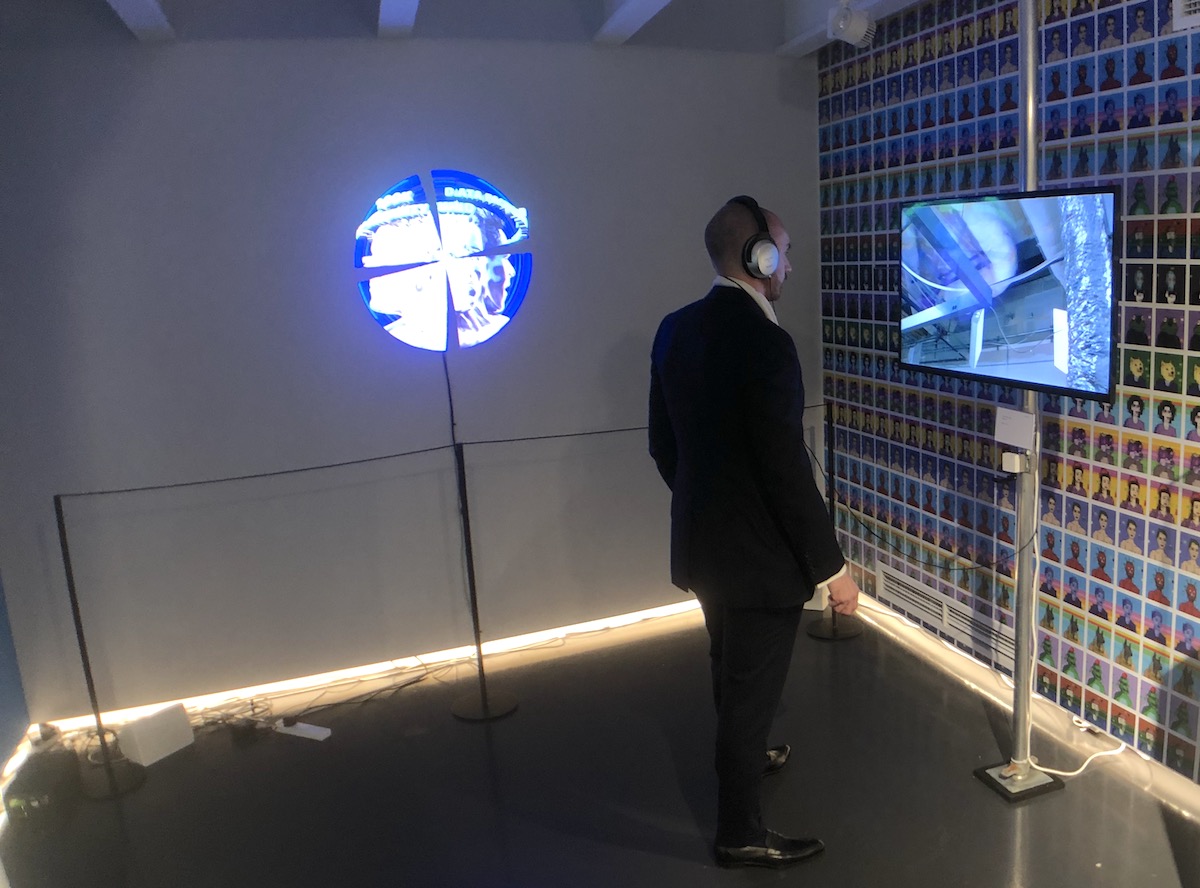Letter to a Turtledove
2020 - Film & Video (Film & Video)
20:55 minutes
Dana Kavelina
Letter to a Turtledove by Dana Kavelina is a short film based on a poem written by the artist. Delivered as a monologue and presented with subtitles, the poem encapsulates the traumas, grievances, horrors, dreams, and hallucinations that have descended upon Ukraine’s Donbass region since its invasion by Russia in 2014. Appropriating amateur footage shot during the war in the Donbass region, Kavelina’s film weaves sound and image into a poignant tapestry that considers the absurdity of war. The footage is spliced with Kavelina’s own animated segments, staged mise-en-scène, and archival footage of the Donbass from the 1930s. Kavelina’s reimagining of old tropes is a surreal and powerful anti-war film-poem. Originally conceived as a radio play, “Letter” actually refers to a radio signal, or call, addressed to a woman in the occupied territories. The film is an attempt to build an alternative optics through which to examine the conflict in Ukraine. It is an invitation to understand the war not through the lens of the “friend-enemy” paradigm, but through the “rapist-victim” dichotomy. While victimhood is typically understood as the confiscation or denial of one’s subjectivity, Kavelina’s film proposes victimhood as a status that possesses agency by absorbing and encapsulating violence.
Dana Kavelina is an artist and activist who works with video, animation, painting, illustration, and text. Through these mediums, Kavelina injects an artistic component into civic activism and protest. Her work considers vulnerability, personal and collective trauma, as well as historical and cultural perceptions of war that exceed conventional narratives. Her award-winning animated film About Mark Lvovich Tulpanov, Who Talked to Flowers (2017) depicts the events of the military conflict in Donbas, Ukraine through the lens of personal tragedies.
Colors:
Related works sharing similar palette
» see more

© » GALERIA FOKSAL
Karol Radziszewski, Nose up the Ass - Galeria Foksal Polski English GALERIA FOKSAL #Las Rzeczy Exhibitions Artists About gallery Contact Karol Radziszewski Karol Radziszewski, Nose up the Ass October 20, 2023 Opening: Friday, October 20th, at 6:00 till 10:00 pm The exhibition runs: October 20th — December 2nd curated by: Maria Rubersz Working with objects from the past, the archivist opens them up to the future...
Related works found in the same semantic group
» see more

© » KADIST
Mauricio Ancalmo
2010War Footage is a series of wall-mounted works composed of 16mm film leader, tightly bound to flag-shaped panels by the artist...

© » KADIST
Javier Castro
2012In the film La Edad de Oro (The Golden Age) Javier Castro asks several children to describe what they want to be when they grow up and what their best career option is in Cuba...

© » KADIST
Pascual Sisto
2013All Watched Over by Machines of Loving Grace takes its title from a 1967 poem by American writer Richard Brautigan, which describes a utopian future where computers are in harmony with and protective of mankind and nature, performing all the necessary work while we retreat back towards nature...

© » KADIST
Jane Jin Kaisen and Guston Sondin-Kung
2010The Woman, The Orphan, and The Tiger begins with the sound of women’s voices describing histories of violence, of things repressed and silenced...



